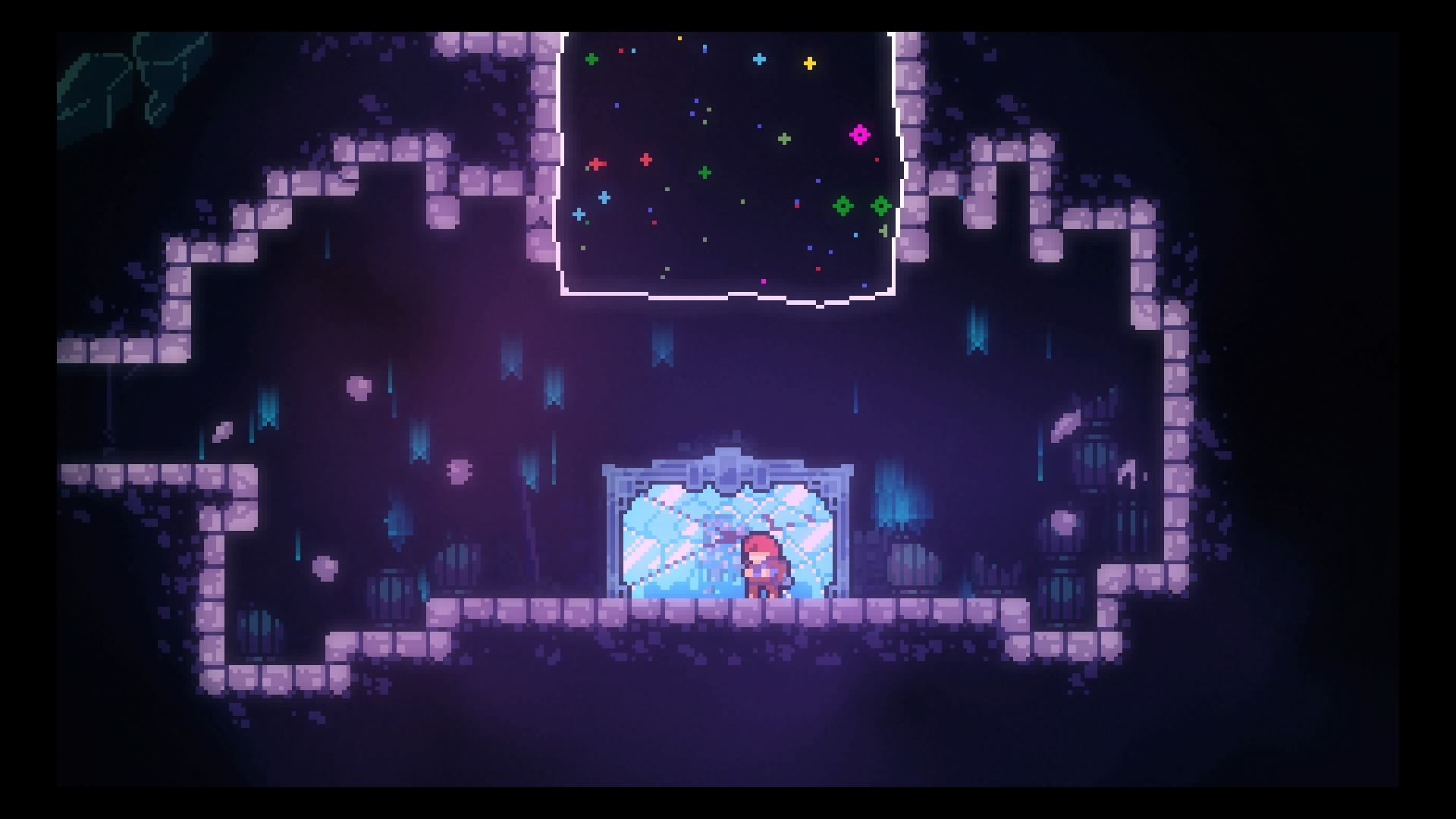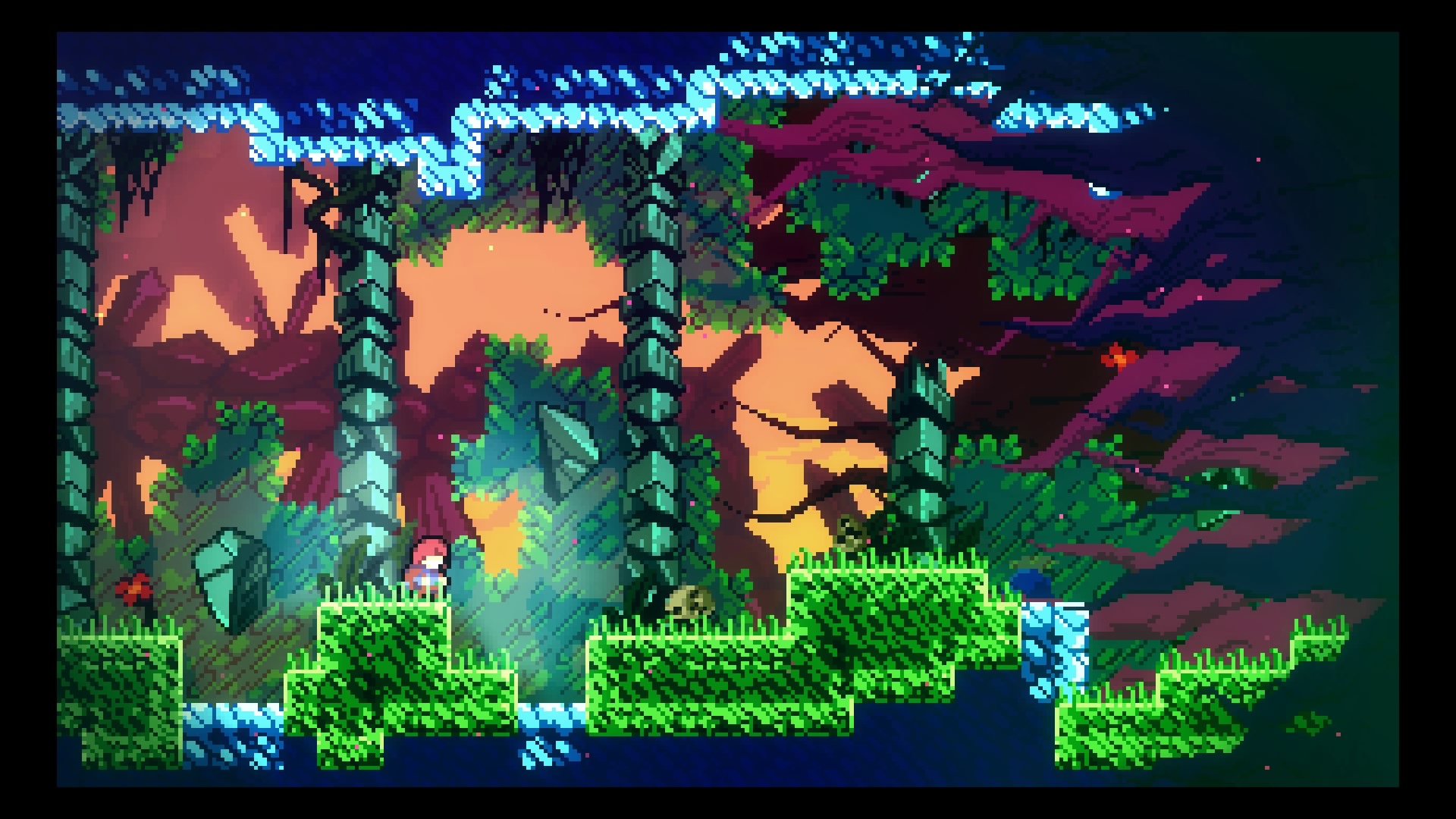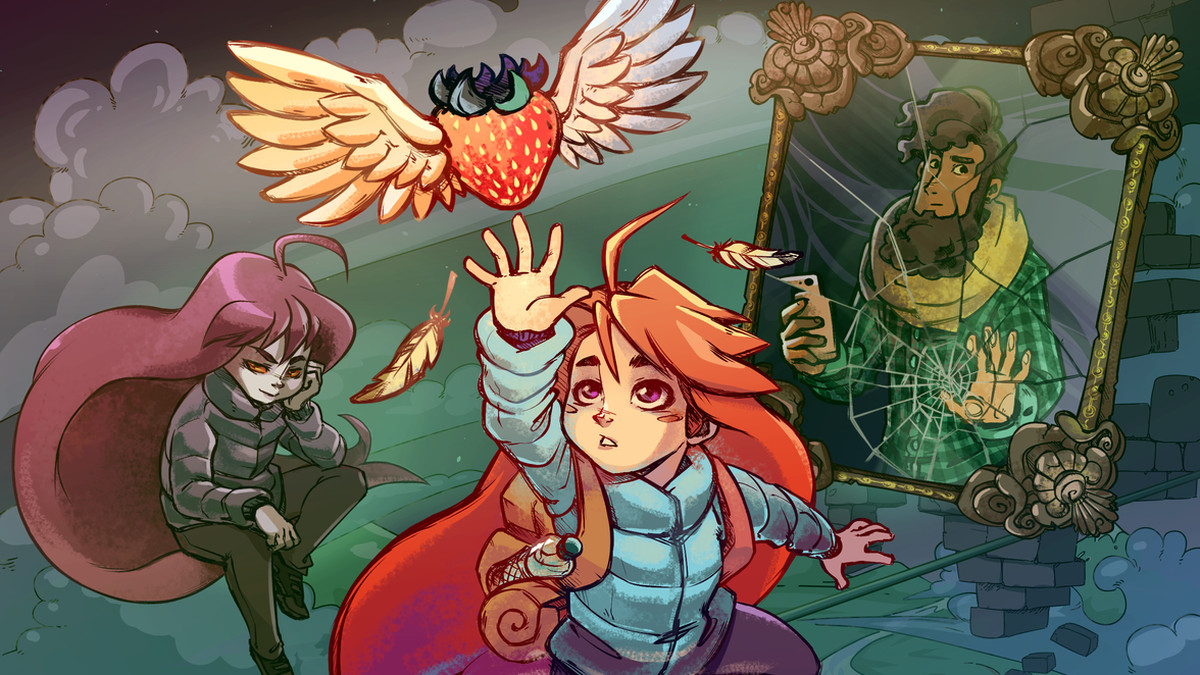The very basis of a platformer is predicated on a player’s determination. “Thank you, Mario! But our princess is in another castle!” is the defining instance of the genre’s inherent notion of insisting on progression in the face of adversity. Without an end goal, however straightforward the context, a platformer fails to provide the incentive to battle and jump one’s way through its various challenges.
Rather than provide an antiquated, objectifying MacGuffin a la Mario, Celeste inverts the tired trope and illustrates its end goal as an internal symbol of success. Similar to this year’s God of War, reaching the peak of this titular mountain serves as an endpoint for a journey in which the experience itself proves more significant than the conclusion. Writer and developer, Matt Thorson understands that without a proper struggle, there is no payoff, nor room for improvement or landscape to paint his heartfelt tale.

With this in mind, Thorson constructs a central gameplay conceit around having a second chance. Racing through the bafflingly-sophisticated platforming, players may dash through the air after jumping — a sort of evolution of the classic ‘double jump’ — which allows the developer to experiment with a plethora of design choices and level-based gimmicks, which befit the primary goal of providing as fervent and brain-scratching a challenge as possible, all throughout.
“Be Proud of Your Death Count!”
Every moment, every stage, every screen demands the audience’s ability to learn. To evolve and push the limits of their brainpower as a means of understanding the world ensnaring their character, and how to move themselves through it. In other words, Celeste necessitates death, expects its players to fail again and again, and the game celebrates this system as an affirmation of persistence.
“Be proud of your Death Count. The more you die, the more you’re learning! Keep going!” Celeste inverses the pessimistic dread of death as purgatorial fugue state in Limbo, touting failure as mere interference during a person’s journey towards personal success. In fact, the game embraces the inevitability of failure as wholly necessary to one’s mental growth, utilizing the very power of psychological development as a means of illustrating its grand thematic purpose.

Thorson is dedicated to making his game as personal a journey as he can without sacrificing his own narrative ambitions. The audience chooses the name of the protagonist, which aids in developing her personal story as an identifiable parable. The central mechanics promote a universality to the idea of battling depression. Self-doubt and a lacking ambition permeate every facet of the game’s journey; and the way in which the game is framed allows for an abundance of small victories to culminate in a grand tapestry of achievement.
Failure is Necessary to Personal Growth
The areas of dialogue serve to both establish the grand context to the gameplay as well as provide some needed relief from the ceaseless platforming challenges. Call them moments of levity, time to sit back and breathe after bouts of intense mental struggle. This is not an undetermined design prospect; Thorson’s ambitious allegorical goals reflect the internal challenge of a player tackling an arduous array of increasingly sophisticated platforming sequences, which themselves are formulated around the very notion of Life lessons learned through understanding and focus.
The result is a calculated tour de force fascinated by the human mind’s ability to overcome its own disabilities. Celeste proves a potent modern portrait of human determination; a self-aware, carefully attuned genre piece in which the accessible, though innovative mechanics appropriate its sincere storytelling aspirations.

Thorson and his collected crew at Matt Makes Games have forged a chronicle befitting the current era’s burgeoning acknowledgment of mental illness as a widespread issue. The result is a game far more human and involving and genuinely impactful than any platformer in recent memory, an instant classic which stands as a significant step forward for the maturation of the medium.



